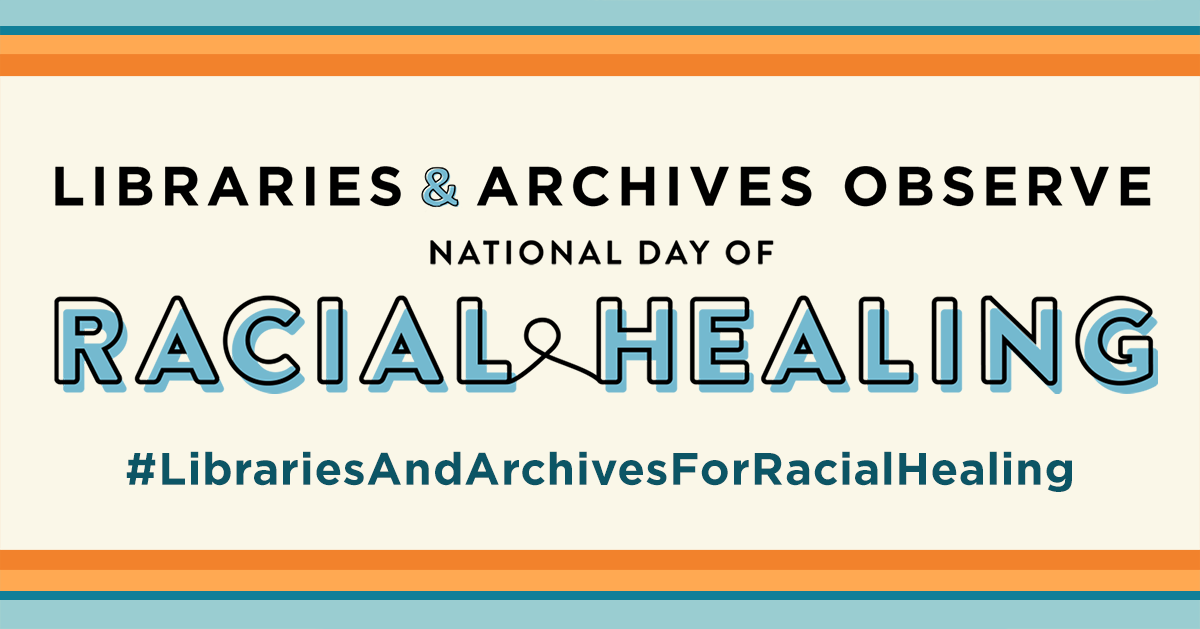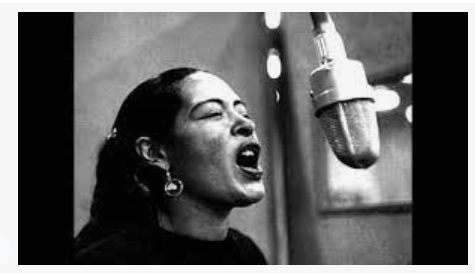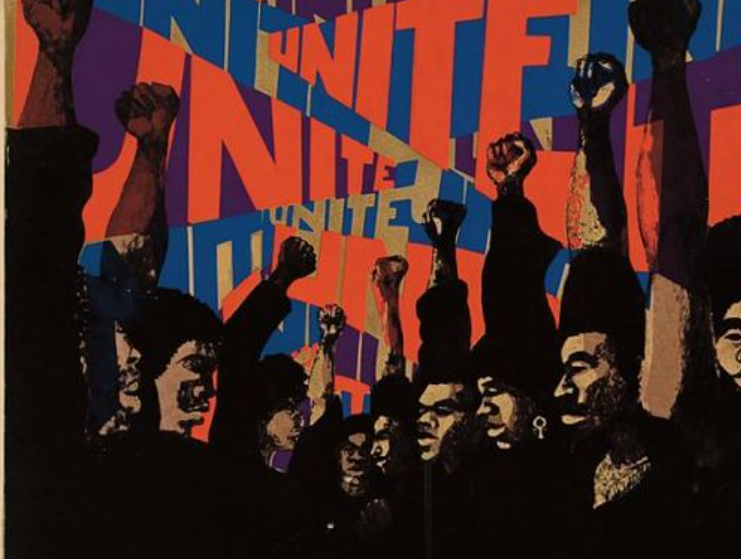- About Archives
- About SAA
- Careers
- Education
- Publications
- Advocacy
- Membership
 These ideas are courtesy of Kevin D. Strowder, Director of the Office for Diversity, Literacy and Outreach Services of the American Library Association.
These ideas are courtesy of Kevin D. Strowder, Director of the Office for Diversity, Literacy and Outreach Services of the American Library Association.
Intention: The National Day of Racial Healing on January 18, 2022, is part of a larger movement for Truth, Racial Healing, and Transformation (TRHT)—a political and cultural framework developed by Dr. Gail Christopher and the W. K. Kellogg Foundation. TRHT is embraced by more than 300 organizations in the academic, artistic, civic, and faith communities calling for the establishment of a US Commission on Truth, Racial Healing, and Transformation.
Devotion to Healing: To honor and observe The National Day of Racial Healing, we encourage you to take part in your own individual reflection and/or provide space within your organization to build community. We ask that you identify and commit to holding one hour for this moment on January 18, 2022 and beyond. Please feel free to implement the resources below and those from the Kellogg Foundation—as well as those from SAA, ALA, and ARL—as a guide to build healing and growth around racial oppression.
Community Discussion Via Recording
View and respond to the links, questions, and starter prompts below to engage in meaningful conversations within your community.
What resonates with you after viewing these videos?
If you had this platform, what perspective would you share for those looking to heal from racial trauma?
We can’t heal if . . .
Community Discussion Via Music
Engage in the power of music to uncover meaning and connection from songs that shape a movement. Play any of these tunes (and those your group recommends) as a catalyst to sharing a universal language. Open the floor for interpretation, discourse, and emotion through song.

Community Discussion Via Text
By engaging in practices that enhance our own Racial Literacy, we better empathize with those impacted by inequitable systems. Taking a closer look at the narrative and text created in response to racial injustice allows us to focus on intentions while also celebrating the work of writers. Review the list of links below that house book recommendations, short articles, snippets of speeches, and academic publications that speak to the impact of race in the world. Identify one or two sources that you connect with, then engage in dialogue or reflect.![]()
Some questions to consider:
Community Discussion via Healing Circles
“Deriving from practices of Native Americans, First Nations, and indigenous peoples, the Circle Process allows for the formation of relationships, the honoring of voices, and the creation of unity. The process is, at its essence, a story sharing process, which brings together people as equals to have open exchanges about difficult issues or painful experiences in an atmosphere of respect and concern for everyone.” (Source: Healing Justice Project.)

Below is a list of resources to educate staff, implement programming, and connect with organizations around the country that might be able to visit your space to host a circle. We encourage you to lead with intention and map out a plan for sustainable learning.
Community Discussion via Visual Arts
“The arts have a long and deep history of being a platform for both dialogue and healing, discord, and unity. It maintains a unique and human place in shining a spotlight on inequities and injustice. Art unapologetically holds up the mirror to our society, our actions, our ideals and our fears. Art is the soul of a community.” (Source: National League of Cities.)
Dive deep into the creative works of inspirational artists who curate emotion through visual art. Select key pieces from several mediums that highlight racial harm and the zeitgeist. Invite conversation and even encourage attendees to share work of their own.